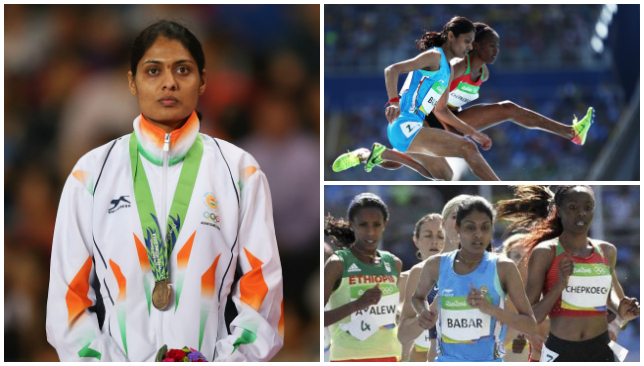
The small village of Mohi is a relatively unknown area in the Satara district of Maharashtra. Steeped in poverty and lack of basic amenities, life in Mohi is well removed for the hustle and bustle of cities like Mumbai.
It is here that Lalita Babar began her journey that ultimately culminated into one national record after another. Growing up in the 90s, a six-year old Babar would regularly sprint to her school which was almost four kilometers away from home. Her parents, farmers by occupation, could not afford shoes, so the little girl would run barefoot.
Representing the state at a national level competition for schools held in Pune in 2005, Babar clinched gold running without shoes once again in the 3000 meters race. A decade later, she now finds herself facing the opportunity to clinch gold at the Olympics, 32 years after PT Usha last qualified for an individual track event final at the Summer Games.
BABAR’S EMERGENCE AS A PROSPECT
The scouting of Babar’s talent occurred under the most unusual circumstances. It was during a kho-kho event that her coach Bharat Chavan singled her out. Watching her sprint in the 400m and 800m races, Chavan persuaded her to compete at national level. The rest, as they say, is history.
As a long distance runner, Babar turned her attention to 3000m steeplechase in 2014, following her victory at the Mumbai Marathon. At the 2014 Asian Games in Incheon, South Korea, she finished third, but was promoted to the silver medal upon disqualification of the gold medalist Ruth Jebet.
Her effort in the final was timed at 9:35.37 – a new national record in the discipline. For the first time in her track and field career, Babar was beginning to reap the rewards of dedication and hard work.
BREAKING NATIONAL RECORDS REPEATEDLY
The 2015 Asian Championships saw her set the games record and bettering her own personal record by clocking 9:34.13.
At the 2015 World Championships at Beijing, Babar scripted a new national record for the third time in two years with a time of 9:27.86 in her qualifying heat. However, she completed the finals at a modest eighth position after leading the pack for an appreciable fraction of the race.
In a remarkable turn of fortunes, Babar found herself sidelined from mainstream athletics after picking up an injury during the 25km race in Kolkata that was aggravated during the Mumbai Marathon in early 2016. It was not until February that she could return to the track.
Limited preparations, however, refused to be a hurdle for the 26-year-old who has been championing obstacles right from her childhood. She settled for nothing less than gold at the Federation Cup in April, shattering the national record once again with a timing of 9:27.09.
AWE-INSPIRING PERFORMANCE AT THE OLYMPICS
Participating alongside fellow runner Sudha Singh, Babar lit up the track at Rio with yet another national record during the 3000 Steeplechase heat – this time at a staggering 9:19.76 seconds. She finished just outside the top three in her heat, but managed to qualify for the finals despite falling early in the race.
Monday will decide whether destiny rewards Babar’s struggles against poverty, apathy and ignorance with material honor, but medal or not, it may be safe to assume that the Maharashtrian girl will return home as an icon in the eyes of aspiring athletes in India.